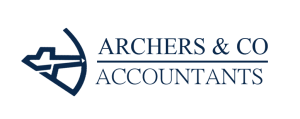Company Expenses
Limited Company expenses – what can you claim?
When you are running any business including a Limited Company, you will incur a number of expenses during the course of ordinary business activity.
Only genuine business expenses are allowable
The golden rule for all expense claims is you can only reclaim for expenses which have been incurred wholly, exclusively and necessarily in the course of running your company.
Additionally, you cannot claim for expenses which have a dual purpose for both personal and business use. An example is a business suit. You should always keep all of your receipts and invoices in order to prove that any expense claims made a genuine Business expenses.
Typical business expenses of a Limited Company
Generally, your company can deduct from Sales / Turnover any type of expenses which aren’t specifically disallowed by HMRC, or are considered to be capital expenditure items.
The main business expenses you can set off against Corporation Tax (unless otherwise stated):
• Salaries
• Pension contributions (via an approved scheme).
• Employers’ national insurance contributions (NICs) payable on salaries paid to company employees.
• Cost of subsistence while away from your workplace (no claims after 24 months for subsistence where you are travelling to the same temporary workplace).
• Accommodation costs when away from normal place of business (although must not exceed 24 months at a temporary workplace).
• Travel Costs can only be claimed back if it has been incurred during the course of your business activity. You cannot claim for home to work travel. You should keep a record of all journeys and receipts
• Travel and parking costs, mileage allowance if using own vehicle of 45p/mile for the first 10,000 miles, and 25p/mile thereafter. 20p/mile rate for bicycles.
• You can claim parking cost, congestion charges and tolls. You CANNOT claim parking tickets / fines.
• Training course fees as long as the skills are relevant to the business.
• Stationery, postage, and printing costs.
• Business insurance, such a professional indemnity insurance.
• Company formation and ongoing costs (e.g. Annual Return fee).
• Telephone and broadband packages (contract must be in the company name).
• Mobile phones (contract must be in the company name).
• The cost of business calls can be reclaimed on a residential phone bill (although practically it is messy).
• Home office costs (a flat £4/week without receipts is allowed by HMRC where you are not renting an office).
• Computer equipment and software.
• Costs of advertising and marketing your business.
• Business gifts up to £50 per individual are allowable before more complex rules apply.
• Incidental overnight expenses of £5/night (£10/night if overseas) can be claimed as a flat rate if you are working away from home.
• Authorised bank charges, e.g. standing charges each quarter.
• Christmas party exemption for directors and employees of £150 per person per year (you can include your partner or spouse). The total cost of everything must not exceed £150.
• Professional fees, such as accountant or solicitor.
• A limited number of professional subscriptions, if allowed by HMRC.
• Capital allowances (depreciation of assets).
• Business magazines and books.
• An eye test for employees who use computer equipment.
• An annual private health check for employees.
• Hire purchase agreements (in the company name).
• Company car expenses (although there will be personal tax charge as a benefit in kind charge for private use).
